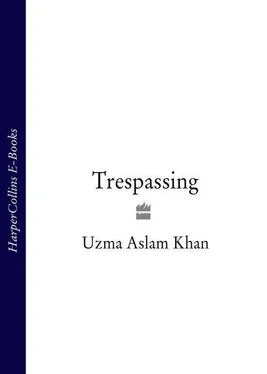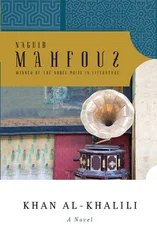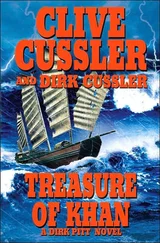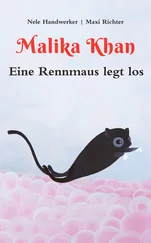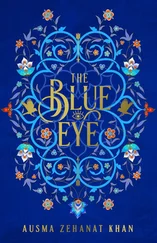But it struck him that he’d absolutely no notion how to go about the business. He had, in fact, no notion how the house ran at all. Who paid the bills and where? How much did a tanker even cost?
When he asked Anu, she said he was a dear for wanting to help her and handed him a hundred rupees plus a file the office would need. Then she told him to be careful. ‘It seems everyone is getting kidnapped these days. It’s even worse than before you left. You’ve no idea!’
He especially hated it when she declared he had ‘no idea’ because the doctor had ‘sent him away’. He blew her a quick kiss.
The car was still dead so he began walking to the main road for a taxi. There were tiny islands of dry concrete between slimy puddles as thick as the soup in airplane toilets. The air was entirely saturated, enveloping him in a dense funnel. The sun warmed this moisture-funnel and he began to sweat, all the while hopping from one dry patch to the next. He passed Khurram’s house, looking up at the hideous glazed domes and brass balcony. Throughout the rains, the lights circling the verandah were the only ones to be seen on the dark, putrid street. He wondered again what Khurram’s father did. Khurram refused to say. All three cars were gone. Salaamat was nowhere in sight.
He covered his nose when passing the large patch of land where the neighborhood dumped its trash. Polythene bags hung on tree limbs and telephone wires, plugged open gutters, tumbled along driveways. He turned onto a side street, wanting really to head back to his room. His powerlessness overwhelmed him. How could he even think clearly when his body struggled at the most basic level: for water, electricity, clean streets? What could he begin to do here? And yet, somehow, millions survived. Was it survival or immunity? Was there a difference?
He hit an intersection. Into his moisture-funnel swirled car-exhaust. The horns drained him further. Drivers flickered lights even at daytime. There was no sidewalk, no zebra crossing, and there might as well have been no traffic lights. A lame beggar sat on a plank with wheels in the center of the road. While Daanish dodged two Toyotas, the beggar chased him, dashing like a contestant in a luge-race, wheeling himself forward with his hands. Catching up with Daanish, he reached out and grabbed his shirtsleeve. Daanish ran faster, inadvertently wheeling the man along.
A taxi stopped. Daanish leaped inside, panting, ‘The water office.’
Days after the pre-rain strikes, many shops were still closed and hardly any fruit-stalls had been set up. The driver said, ‘First I missed work because of strikes, then because of rain. Allah malik hay.’
Still collecting himself, Daanish said nothing.
‘How are they supposed to get here?’ the driver continued. ‘When all the buses are burning and there’s curfew in the streets, how are they to lead normal lives?’
In the rear-view mirror Daanish saw he was a wiry man with eyes heavily rimmed with kohl. The mirror was bedecked with a prayer the Prophet had read when traveling, a photograph of the Kabbah, beads and a scented pine. The dashboard was sprinkled with blue and yellow stickers in the shape of flowers and hearts and the steering wheel was upholstered in a shaggy red rug. The car reeked of sweat-soaked lavenders.
In the mirror, the driver’s eyes scrutinized Daanish too. ‘You don’t look like you know much about curfews.’
‘No,’ Daanish confessed. ‘Just about water on the streets and none in taps. I’m going to get a tanker.’
‘Ah!’ The driver chuckled. ‘See how there’s no one around? They’re all trying to get a tanker!’
What if he knew Daanish had recently returned from Amreeka? He’d laugh them both off the road.
‘You should have brought your sisters along,’ the driver pursued. ‘You know they always let women through first.’ When Daanish said nothing he added, ‘I see documents. Good. You should at least be carrying documents.’
‘I’m glad you approve,’ Daanish muttered.
The car stopped outside a building and Daanish paid. The man drove away, bemoaning, ‘What is normal any more?’
When Daanish walked inside the gate he saw it was not a building but a wide expanse of dirt, on each side of which stood a desk. Both desks were surrounded by a mob. Daanish chose the desk further from the gate; it looked a little less swamped. He stood at the back, attempting to get in line, knowing he was an idiot for trying. As soon as two people tried to stand in series, the one at the back stuck his head forward, which led to the first nudging the second back in line by popping out himself. While the two danced sideways, newcomers simply cut ahead. Eventually, Daanish began doing the same.
But he couldn’t get too far. Standing on his toes, he tried to steal a glimpse of the official hidden behind the mob, but he only heard angry customers shouting at the man, and then at each other. The voices rose and a full-blown stampede appeared imminent. And all for water. It was that tail-biting frenzy he’d felt in his uncles. That inbreeding of disappointment, as if they were all stranded on an island in a long-forgotten sea.
Returning to the back, Daanish was immediately met by a man so emaciated his gray polyester trousers flapped around his hips and legs like a skirt on a scarecrow. To Daanish and a handful of recent arrivals, he declared, ‘How will our nation prosper if we can’t even make a line!’
One of the newcomers was a stocky woman with a dupatta around her head. She cut straight to the front. The men reluctantly let her through, grumbling that women who grumbled about how hard they had it ought to have it harder.
‘Like in the West!’ Scarecrow said. ‘No one respects women there. These are the sound traditions of our country. Reverence of the female!’ He turned to Daanish. ‘I was a student at the University but it is closing for weeks. Everywhere you looking students joining politics. Almost everyone in engineering has gun.’
Daanish wondered why everyone cried to him. Anu, the taxi-driver, now this man. Then there was the worker who insisted Daanish could get him a visa. What was he, a healer’s son? Yes! He grew miracles on his fingertips!
Like Khurram, this one was just as keen on practicing his English. He said, ‘Parents are checking their children’s things when they no look. You know how many unlicensed guns were buying last year, and most by teenager?’ His head jiggled on a stalk-thin neck.
Daanish decided it was time to swim into the sea breaking over the official’s desk. He drilled forward, hands out, head lowered, hips smacking sideways, arriving no further than the third ring around the desk. The ground was wet here. Those who exited bore signs of a stiff price: their clothes were caked in mud. But in their hands was a chit of white paper, and this put an immense smile on their ruffled faces.
Daanish was about to ask the young man beside him what the chit meant when the wave parted again, allowing yet another woman through. A young man fumed, ‘That’s not in Islam!’
The man who’d been in front of him, but due to the adjustment for the woman, now found himself pushed to the third ring, said, ‘Yes, the Quran does not say I am to sacrifice my place for a woman.’
‘How would you know, my love?’ replied the one who’d snatched the gap. ‘You can’t even read!’
Daanish and a couple others made use of the diversion by sliding up. He asked another man, ‘What does the chit say?’
This man wore blue shades. He said, ‘It’s the NOC.’
‘What’s the NOC?’
He didn’t answer. Here was the opposite problem: Daanish wanting to talk but bumping into a wall. Or rather, blue shades. He turned to his left and repeated the inquiry.
Читать дальше
Конец ознакомительного отрывка
Купить книгу
